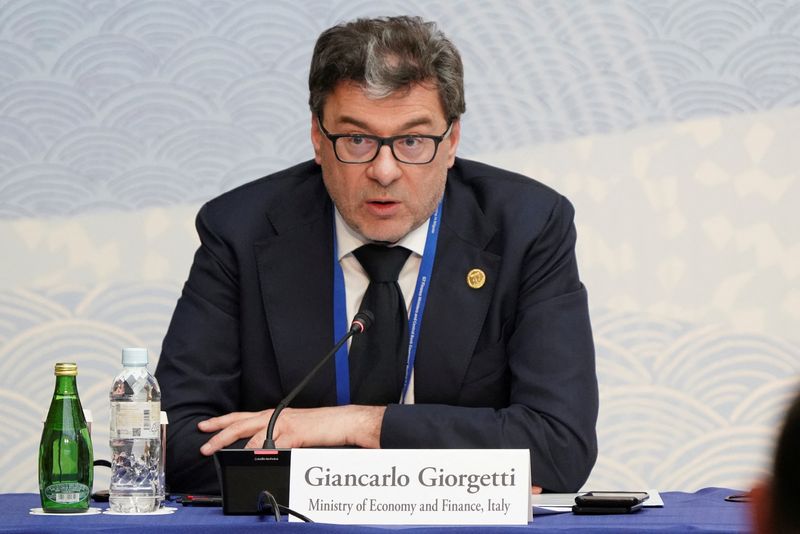By Giuseppe Fonte
ROME (Reuters) - Italy will not accept new European Union budget rules it cannot meet, Economy Minister Giancarlo Giorgetti said, as talks struggle to make progress ahead of an end-year deadline to revamp the bloc's Stability and Growth Pact.
The EU's fiscal rules, suspended since 2020 due to the COVID-19 pandemic, are due to return next year with amendments currently being negotiated by governments. Highly indebted Italy is proposing to make them as lenient as possible.
"I don't think it would be serious to accept rules that are impossible to maintain," Giorgetti told lawmakers ahead of a key meeting between European Union finance ministers on the issue scheduled for this week.
EU rules limit budget deficits to 3% of gross domestic product (GDP) and debt to 60%, with disciplinary steps for those not cutting any excess fast enough, but many European governments far exceed these limits.
Italy in September hiked next year's deficit goal to 4.3% of GDP from a previous 3.7% and did not target a return below the EU's 3% ceiling until 2026, with virtually no debt reduction over the same period.
The European Commission has proposed tweaking the rules by introducing a fiscal adjustment path focused on cutting net primary expenditure - excluding discretionary fiscal revenues, interest costs and cyclical spending on unemployment support - over four to seven years.
Germany has also called for highly indebted countries, such as Italy, to cut debt every year by at least 1% of GDP.
"Overly strict adjustment paths damage growth and worsen debt trends in the medium and long term," Giorgetti said.
Italy, however, seems to have already won some concessions as the minister said the increase in defence spending would be considered a "mitigating factor" justifying a deviation from the agreed spending reduction path.
Giorgetti wants Italy to be allowed to pursue its fiscal adjustment over a seven year period provided it implement its post-COVID recovery plan and "without further conditions".

The annual debt reduction demanded by Germany does not scare Italy, he said, but it must begin when the effects of costly fiscal incentives for home improvements are wiped out.
Giorgia Meloni's government is concerned that a future accounting ruling linked to these incentives by the EU's statistics arm Eurostat could push up next year's fiscal deficit, making Rome's position even more vulnerable.